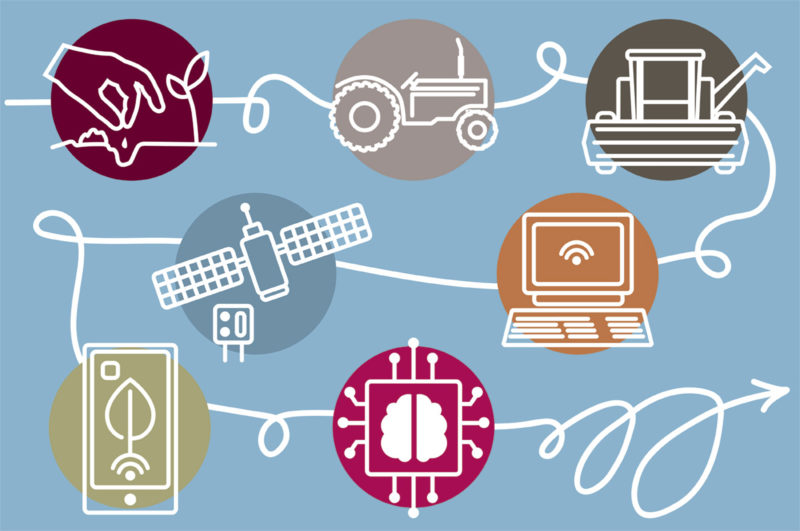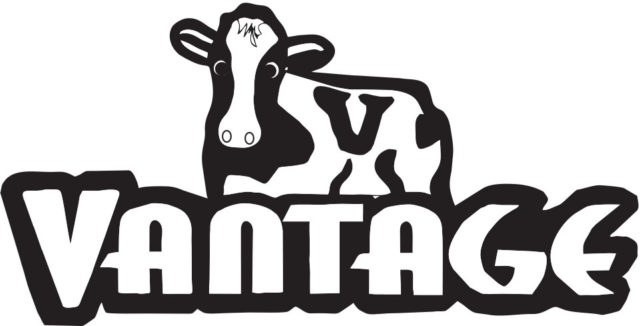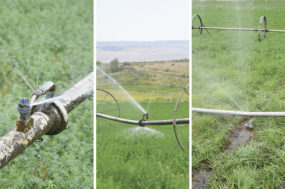The United States of America has always been fertile ground for sprouting the seeds of invention. One of our most respected founding fathers was an inventor. Benjamin Franklin invented the Franklin stove, bifocals, the lightning rod and swim fins. Benjamin Franklin also discovered electricity, although Og the Cro-Magnon who survived a lightning strike 10,000 years before Franklin, may dispute that assertion.
American inventors have produced the cotton gin, the airplane, the internet and fry sauce (if you’re reading this outside of Idaho, ask an Idahoan). There is a thought experiment popular with trivia buffs: What is the greatest invention of all time? Some automatically turn to prehistoric man. Man-made fire may be the greatest invention of mankind. It creates heat for warmth and cooking, and light to scare away the darkness. Stone tools may make your list, especially if you, unlike me, have an appreciation for tools. The domestication of animals is an invention more my style. The first man who jumped on the back of a horse is pretty cool in my simple mind.
Other folks who don’t know any better go straight to new technology. Computers, microchips, the internet, flying cars and robot maids are examples of this. Try convincing me that the smartphone is the world’s greatest invention. In describing the wonders of this device, I tell my kids, “You have a supercomputer in your hand more powerful than the one that coordinated the moon landing. All of the world’s knowledge – a library with more volumes than the Library of Alexandria and the Library of Congress combined – at your fingertips, and you use it to watch dumb cat videos and make fart noises.” The potential of an invention does not a great invention make.
In agriculture, the greatest invention is very specific to your sector. Anyone who has operated a manual squeeze chute will tell you the greatest invention is a hydraulic squeeze chute. Dairymen would say the milking machine. Alfalfa farmers may claim Roundup Ready alfalfa is the greatest invention. It’s the same thing as a teenage girl saying that men’s deodorant is the world’s greatest invention; a solution to your most poignant problem is the greatest invention.
Let me make the case that the tractor is the world’s greatest invention. Before the 1920s, when the mass production of tractors replaced old-fashioned horsepower, about one-third of every farm was devoted to pasture and hay to feed these beasts of burden. The fuel for tractors comes from an oil refinery, so that one-third of every farm could now be cultivated for human food instead of animal feed. Farmers that adopted this technology were approximately 50% more productive. And the farmers who didn’t adopt the new technology eventually sold out to the ones who did. Even with these productivity gains from the tractor, there is an even more impressive invention … one you likely have never heard of.
The American plant geneticist Norman Borlaug developed a plant breeding system that resulted in grain varieties that were less susceptible to disease and weather. Mr. Borlaug’s invention is not flashy but is a complicated technology. Mr. Borlaug’s invention created wheat and rice varieties that could avoid widespread crop failures. The details of Mr. Borlaug’s innovation are somewhat mundane, but the results are astounding. With these new varieties of wheat and rice, famine and starvation have been effectively eradicated from the earth. An estimated one billion people avoided starvation due to Mr. Borlaug and his new plant breeding technology. The greatest part, Norman Borlaug’s invention was only possible with the hundreds of millions of farmers who actually implemented the new varieties.
Which leads to my last point. Ultimately, agriculture is the root of all invention. Agriculture is the first step in the general development of culture. Hunter and gatherer societies spend most of their days hunting and gathering. Subsistence farmers have adequate nutrition, but most of their working hours are devoted to growing food. In our agricultural society, one farmer feeds 166 people. With their bellies full, the rest of the population enjoys the leisure of thought. Well-fed thinkers develop concepts that become philosophy, religion, art, science, law, engineering, medicine, finance, mathematics and technology. Farmers literally feed invention and innovation.
So, what will be the next great innovation in agriculture? Will it be the adoption of outside technologies like artificial intelligence or robotics to an agricultural application? Or will it be something specific to agriculture like Norman Borlaug’s achievement in plant breeding? The next great breakthrough in agriculture can’t come soon enough. As the world’s population approaches 8 billion people, our productivity must advance, and the number of people each farmer feeds must increase.
In the meantime, I wish someone would focus some innovative effort on my most pressing problems. Could someone develop barbed wire that can handle a snow load? Or how about a cattle prod that works when it’s wet and cold? Maybe a smartphone holder on my hydraulic squeeze chute so I can watch dumb cat videos while I work? The possibilities are endless.


.jpg?t=1687979285&width=640)

.jpg?height=auto&t=1713304395&width=285)


